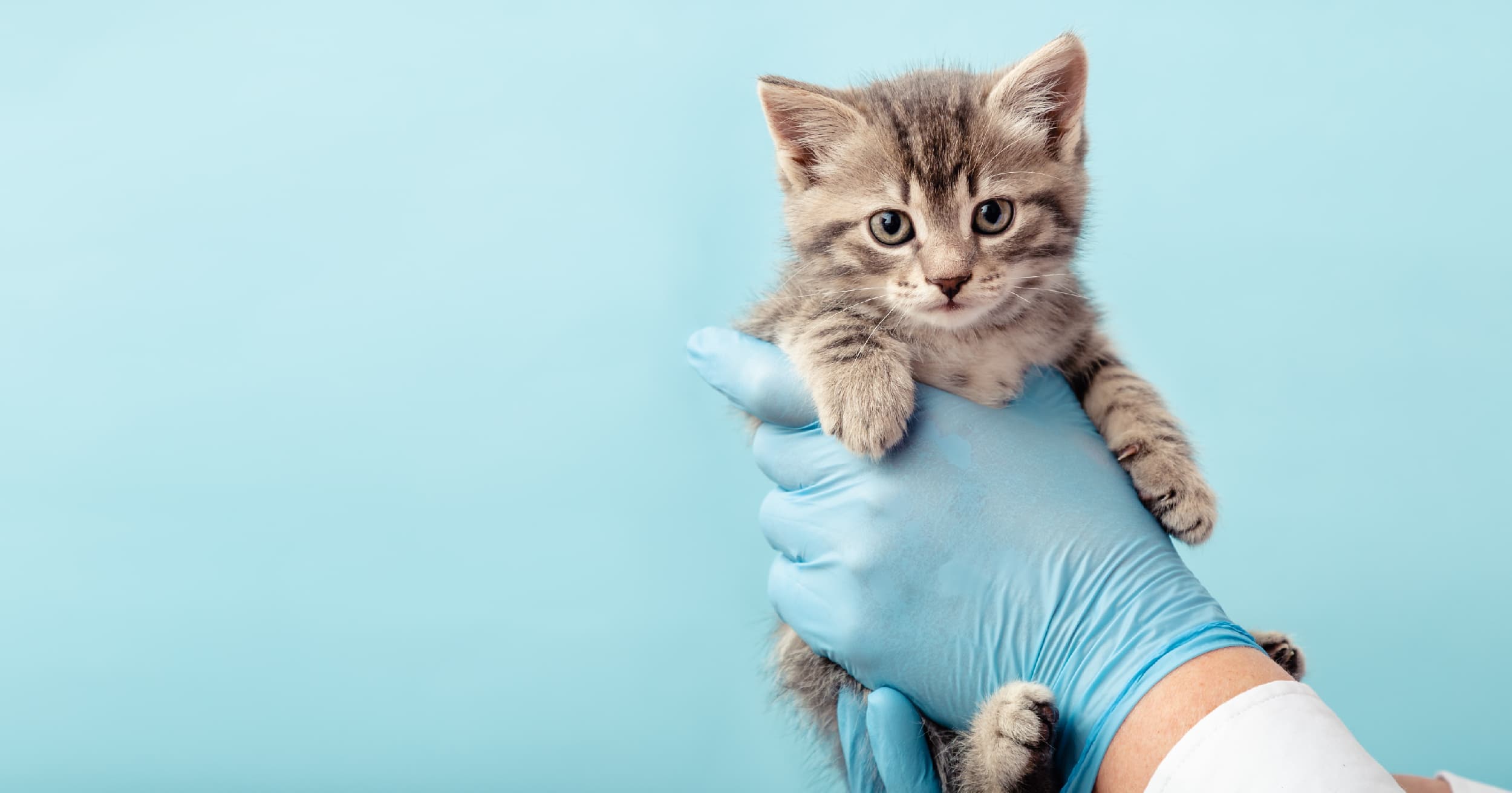
When you take your pet to the veterinarian for a checkup, they will typically ask you some questions, give your pet a physical exam and maybe take some samples for laboratory analysis. But what exactly are they looking for with all those questions and tests, and why should your pet have a yearly (or more frequent) wellness exam? Let’s find out what all those lab tests are about and why it’s worth convincing your cat that the pet carrier isn’t the worst thing since bath time.
Healthy Pets Need to Visit the Veterinarian, Too
Your pet uses a variety of methods to communicate with you — those big, sad eyes when they’re begging for a treat, excited barks when you arrive home and happy purrs when you’re snuggled on the couch. However, one of the things your pet isn’t good at telling you is when they’re feeling sick. Dogs, and especially cats, are very good at hiding when they don’t feel good, which probably stems from their ancestors wanting to avoid looking weak to predators.
A physical checkup allows your veterinarian to look for signs of injury or illness in your pet that might not be obvious. By performing routine laboratory and screening tests, your veterinarian can check if your pet is in the early stage of a disease that isn’t showing symptoms yet (e.g., diabetes, chronic kidney disease) or if they have an infectious disease (e.g., Lyme disease, heartworm disease).
Wellness exams can also be used as a baseline or for trend monitoring if your pet does become ill later in life. Depending on your pet’s age, health status, breed and lifestyle, they may need an annual checkup or more frequent checkups. Your veterinarian can help you determine how often you should bring your pet in for a wellness exam.
It’s Q&A Time
During your pet’s examination, your veterinarian will likely ask a number of questions about your pet. While some of the questions may seem silly (e.g., asking if a Labrador is eating well) or a little uncomfortable (e.g., asking what your pet’s poop looks like), the answers provide your veterinarian with useful information to determine if your pet is healthy.
It’s a good idea to be prepared to answer questions about your pet’s nutrition, behavior, exercise habits and general health. This is also an ideal time to bring up any questions you have about your pet, even if they seem trivial or unimportant, because sometimes those small concerns could mean a big problem.
A Thorough “Pet” Down
Your veterinarian will palpate (feel around) and examine your pet’s body to check their skin, coat, abdomen, muscles (and movement), mouth (teeth and gums), eyes, ears and general condition to make sure everything looks and feels normal. They will also listen to your pet’s lungs and heart and check for external parasites. The veterinarian will look at your cat or dog’s body condition score and weight to determine if it’s in a healthy range for their age and breed. If your pet has a known medical condition, they will check how it’s progressing and if any treatment adjustments are needed.
What’s Going on Inside Your Pet?
To get a more complete picture of your pet’s health, your veterinarian may recommend collecting blood, urine, fecal or other samples from your pet. A urinalysis can help determine if your pet has any urinary or renal issues like feline lower urinary tract disease or kidney stones. Blood tests can help screen for a variety of problems, including thyroid issues or cancer. It’s a good idea to ask at the time of scheduling your appointment if the clinic would like you to bring in a fresh fecal sample from your pet, as this is often checked for intestinal parasites.
Vaccine Boosters
Vaccines for cats and dogs are categorized as either core or non-core vaccines. Core vaccines are considered essential for all cats and dogs based on the exposure risk of the disease it protects against, its severity and ability to be transmitted to humans. Non-core vaccines may be recommended by your veterinarian depending on your pet’s lifestyle, age, geographic location and risk of exposure.
Core vaccines typically require boosters 12 months after the last vaccination, which is why they’re commonly given during your pet’s annual checkup. Some vaccines have different schedules; for example, there is a version of the rabies vaccine that can be given every three years instead of once a year. Your veterinarian will determine the vaccinations and schedule right for your pet and whether they need non-core vaccines.
Based on the results of your pet’s checkup, your veterinarian may recommend further testing, a modification of their diet, a change in lifestyle or prescription medication. But hopefully your pet will receive a clean bill of health and you won’t need to visit the veterinarian again until your pet’s next checkup!
RELATED POST: Pet Wellness: No, It’s Not All Downward Dog and Cat Pose

